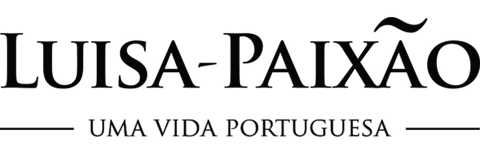How did a people of just one million souls achieve the impossible? In just three centuries, they conquered their land and pushed the boundaries of the unknown to discover the world. A fascinating saga where courage, ambition, and boldness reshaped the course of history!
Start with our first article on the birth of a Nation (5 minutes), then continue with the second article on the rise of an Empire (5 minutes).
The history of Portugal is rich and ancient. With nearly eight centuries of history, Portugal stands out as one of the oldest countries in Europe.
Its territory has been a crossroads of civilizations, shaped by the peoples, cultures, and traditions that have succeeded one another. From prehistory to Roman invasions, through the Visigothic kingdoms and Muslim rule, Portugal underwent many transformations before emerging as an independent kingdom in the 12th century.
The Iberian Peninsula: A Land of Desire.
Before becoming two distinct nations, Portugal and Spain together formed the Iberian Peninsula, a territory coveted by the great powers of Antiquity and the Middle Ages.
Over the centuries, the peninsula was the stage for numerous struggles to control its lands: the Greeks, Carthaginians, Romans, barbarian tribes, and finally the Muslims, all fought to assert their dominance.
Around the 2nd century BCE, the Roman Empire began its conquest of the Iberian Peninsula, dividing it into provinces, including Lusitania, which corresponds to present-day Portugal.

Evora - Ruins of the Roman Temple
This period marks the first steps toward the Christianization of the region, laying the cultural and religious foundations that would shape the future kingdom.

At the beginning of the 5th century, as the Roman Empire declined, Germanic tribes invaded the peninsula. The Suebi, a Germanic people, established their kingdom in the northwest, encompassing what is now northern Portugal and Galicia. This kingdom represented the emergence of the first Christian entity in the region. However, the Visigoths eventually seized control of nearly the entire peninsula, heralding the beginning of the Middle Ages.

In 711, Muslim armies from North Africa invaded the Iberian Peninsula, including the territory corresponding to present-day Portugal, which they incorporated into the region of Al-Andalus.

Sintra - Moorish Castle
Under Muslim rule, the region experienced advancements in mathematics, medicine, agriculture, and the arts, enriching Iberian culture.

The Reconquista, a series of campaigns led by the Christian kingdoms of the north, began with the goal of reclaiming Muslim-held lands.
The Birth of the Kingdom of Portugal.
The foundation of Portugal truly begins in the 11th century, when Henry of Burgundy, for his participation in military campaigns against the Muslims, is granted the County of Portugal (around Porto) in 1096 by his father-in-law Alfonso VI, King of León.

Guimarães - Alphonso 1 castel
His son, Dom Afonso Henriques, declared the independence of his territory from the kingdoms of León and Castile in 1139 and proclaimed himself king under the name of Afonso I.

In 1179, the Pope officially recognized Portugal as an independent kingdom, marking its birth as a nation-state, one of the first in Europe.
The Reconquest.
From then on, Afonso I led campaigns to expand the kingdom southward, settling in Coimbra and forming alliances with the Templars and Hospitallers to extend his influence between the Mondego and Tagus rivers.

His successors continued this crusade against Al-Andalus, with the support of Spanish military orders such as those of Santiago and Calatrava.

Tomar - Templar Fortress
The reconquest of the south ended in the Algarve in 1249 under Afonso III, allowing Portugal to establish its borders, which remain the same to this day.
Stability and Flourishing of the Kingdom.
After the Reconquista, Portugal entered a period of stability and development.
Under kings such as Denis I (1261–1325), Afonso IV (1291–1357), Peter I (1320–1367), and Ferdinand I (1345–1383), the kingdom experienced economic, demographic, and cultural growth.

Lisbon - Monastery of the Hieronymites
The country invested in agriculture, infrastructure, the arts, and navigation, laying the foundations for the Portuguese expansion in the following centuries.
The Birth of a National Language.
In 1290, King Denis I, known as the "troubadour king," declared Portuguese the official language of the kingdom, replacing Latin. This decision marked the birth of a distinct national language, reflecting the country's cultural identity. By making Galician-Portuguese the official language, Denis I strengthened Portugal's unity and asserted its linguistic independence, paving the way for a rich literary and intellectual tradition.

The coat of arms of Afonso II, King of Portugal,
Thus, from the Middle Ages, Portugal began to shape itself into a sovereign nation, strengthened by its unique identity, a culture enriched by its multiple heritages, and a pioneering spirit that would soon lead it to venture beyond its borders.
In short...
The history of Portugal traces the journey of a nation forged by centuries of conflicts, cultural confluences, and conquests. From its beginnings, Portugal distinguished itself as a strategic land, attracting numerous peoples and influences—from the Romans to the Visigoths, and the Muslims—all of whom contributed to shaping its identity.
The creation of the independent kingdom in the 12th century, driven by Afonso I, marked a decisive turning point, consolidating a strong political entity and paving the way for territorial expansion southward. The affirmation of a national language in the 13th century symbolizes Portugal's desire to cultivate its own identity, rooted in its Christian heritage but enriched by diverse traditions.
To be continued...
In the second part of this series of articles, we will continue the history of Portugal and explore the era of the Great Portuguese Discoveries, a period during which the country established itself on the world stage as a pioneering nation in maritime exploration and colonial expansion.

